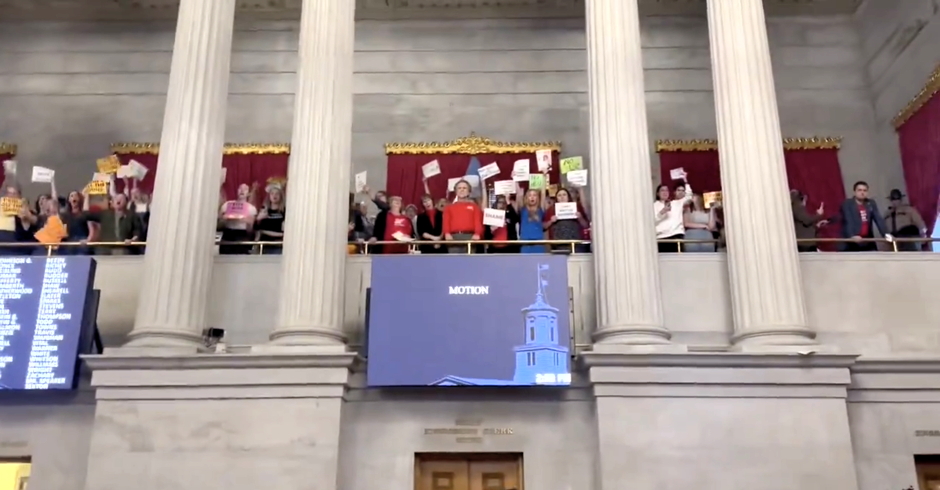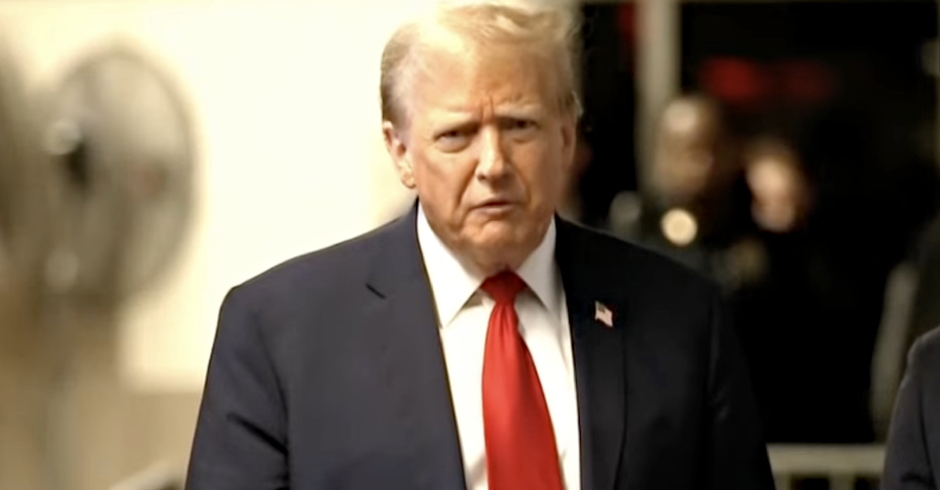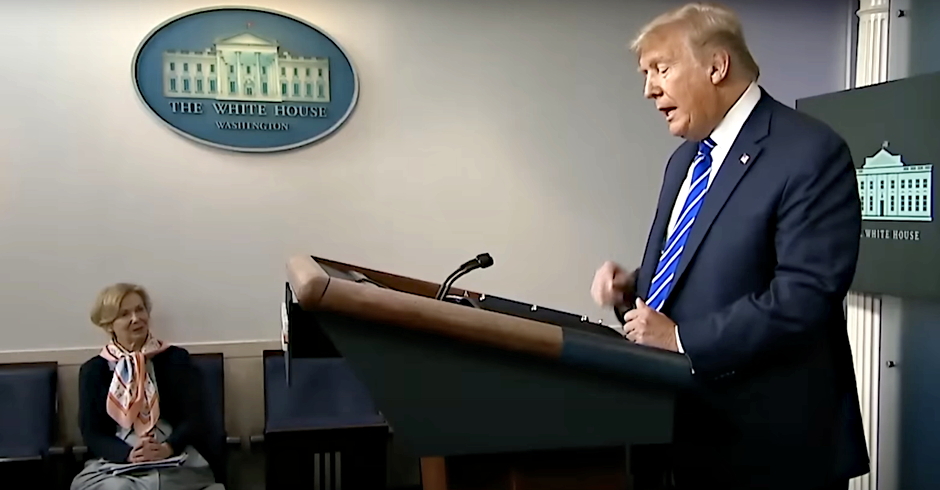International Human Rights Day: The Legacy Of Eleanor Roosevelt
Eleanor Roosevelt’s biographer says if she were alive today she would celebrate the  advancement of the LGBT, economic and social human rights movements globally
Today marks International Human Rights Day around the world. It is the day that we recognize the important role and place of human rights in people’s lives who inhabit the globe from the Arab Spring uprising to the transformative elevation of women’s and girl’s human rights. Indeed, there is a planetary recognition that all people yearn to be free, despite the best efforts of despotic regimes to oppress, suppress and shackle those who are different.
This year’s International Human Rights Day celebrates the right to free speech with the tagline of “My Voice Counts” and touted in a promotional video by luminaries like Nobel Peace laureate Desmond Tutu, an outspoken advocate for LGBT human rights, who has spoken forcefully in recent days about Uganda’s “kill the gays bill”.
The Universal Declaration of Human Rights (UDHR), considered the foundational document from which all human rights law emanates, was drafted under the tutelage of Eleanor Roosevelt, a leader in the establishment of the United Nations after the conclusion of World War II.  Arguably, Roosevelt’s greatest legacy was the adoption of the UDHR and the development and adoption of the International Covenant on Economic, Social and Cultural Rights (signed by President Jimmy Carter in 1977, has not been ratified) and the International Covenant on Civil and Political Rights (signed by President Jimmy Carter in 1977 and ratified  by Congress under President George H.W. Bush in 1992).  Indeed, in 1945 she was appointed U.S. delegate to the UN by then-President Harry S. Truman where she took charge of establishing what many believed at the time, an organization that would end all wars and peacefully negotiate all disputes.
Roosevelt was no push over, according to  Blanche Wiesen Cook, Distinguished Professor at John Jay, City University New York who shared her thoughts about Roosevelt with The New Civil Rights Movement this afternoon.  Wiesen, who resides on the Upper West Side with her partner Clare Coss, is Eleanor Roosevelt’s most recent biographer and most eloquent trenchant story teller about the life of Eleanor Roosevelt, will publish a third volume of a completed trilogy next year.  It was during the short period between the end of World War II and when the Communist “Red Curtain” came down over Soviet controlled Europe that Eleanor Roosevelt pushed for the inclusion of not only civil and political rights, but also included economic and social rights. Truman told her he would not support economic and social rights because they were socialist. In a push back, according to Cook, Roosevelt told Truman she would resign, insisting you can not convince hungry people of the merit of human rights. Truman relented and asked her not to resign.
What would Eleanor Roosevelt think about the state of human rights today?
 “She would really celebrate the work of The International Gay and Lesbian Human Rights Commission and the National Economic and Social Rights Initiative (U.S. based human rights organizations)–she would support the rights of all people across the globe.
How would she feel about the drone utilization of targeted killings by the U.S. government?
“Eleanor would be appalled by the drone policy and targeted killings. Â Certainly, these policies contradict the UDHR. Â We have upended the Magna Carta with these policies.”
How did she resolve the political issues around civil and political rights versus social and economic human rights?
“In the end she divided these rights into two different covenants, thinking she could get them through the Senate much more easily for ratification. Â But it took until President George H.W. Bush to ratify the civil and political rights.”
ÂEleanor Roosevelt was a pioneer on a number of fronts and made a pact to remain with FDR, although he had betrayed her by engaging in a life long romantic relationship with Lucy Mercer Rutherford, and maintained a close relationship with his long serving secretary Missy Leland. Â She turned to others for emotional support and intimacy, including a several-years relationship with Lorena Hickok, the first AP reporter assigned to follow the First Lady who happened to be Eleanor Roosevelt. Â According to Cook, the two women loved each other and wrote daily letter that contained intensely political and loving references throughout the duration of their relationship.
Not withstanding her private and perhaps complicated life, Roosevelt was appointed U.S. Delegate to the UN where she was a force to be reckoned with and not even Harry Truman was willing to risk damaging his reputation by forcing her resignation. Â Indeed, the Universal Declaration of Human Rights is arguably one of Eleanor Roosevelts’s greatest achievements, and no doubt she would be amazed how that document has evolved to encompass the human rights of LGBT persons, peoples with disabilities and more recently, the embrace of indigenous peoples by the world community.
Â
In fact, Eleanor Roosevelt’s distinguished accomplishments to establish the UDHR and the Human Rights Commission has galvanized a global movement to erect a memorial in her honor which is memorialized in the above video.  We are once again reminded why we remain  in her debt 64 years after this singular, triumphant  accomplishment that extends hope to the entire world with these words: “All human beings are born free and equal in dignity and rights”.
Tanya L. Domi is the Deputy Editor of the New Civil Rights Movement blog.  She is also an Adjunct Assistant Professor of International and Public Affairs at Columbia University and teaches human rights in East Central Europe and former Yugoslavia.  Prior to teaching at Columbia, Domi was a nationally recognized LGBT civil rights activist who worked for the National Gay and Lesbian Task Force during the campaign to lift the military ban in the early 1990s. Domi has also worked internationally in a dozen countries on issues related to democratic transitional development, including political and media development, human rights and gender issues.  She is chair of the board of directors for GetEQUAL.  Domi is currently writing a book about the emerging LGBT human rights movement in the Western Balkans.

Enjoy this piece?
… then let us make a small request. The New Civil Rights Movement depends on readers like you to meet our ongoing expenses and continue producing quality progressive journalism. Three Silicon Valley giants consume 70 percent of all online advertising dollars, so we need your help to continue doing what we do.
NCRM is independent. You won’t find mainstream media bias here. From unflinching coverage of religious extremism, to spotlighting efforts to roll back our rights, NCRM continues to speak truth to power. America needs independent voices like NCRM to be sure no one is forgotten.
Every reader contribution, whatever the amount, makes a tremendous difference. Help ensure NCRM remains independent long into the future. Support progressive journalism with a one-time contribution to NCRM, or click here to become a subscriber. Thank you. Click here to donate by check.
 |


















